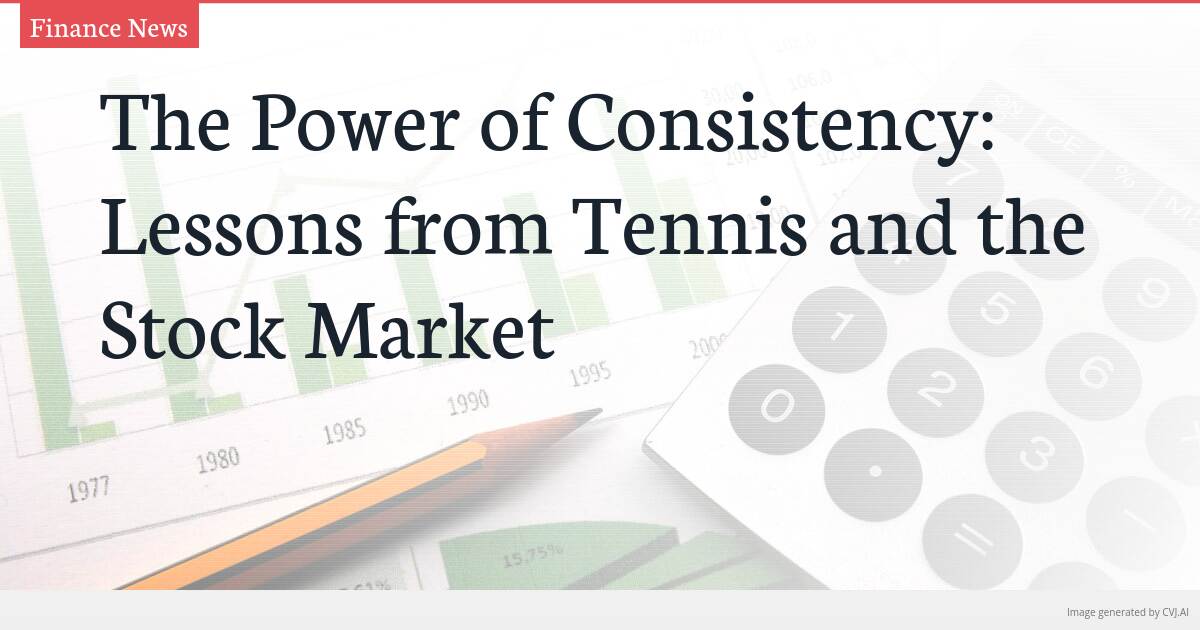Commencement Address by Roger Federer
The commencement address delivered by professional tennis player Roger Federer at Dartmouth’s graduation revealed an intriguing insight into the nature of his sport.
Federer’s Insight
Despite winning almost 80% of his singles matches throughout his career, Federer revealed that he only won 54% of the points in those matches. This revelation highlighted the fact that even the most successful athletes experience setbacks and losses, emphasizing the importance of focusing on the bigger picture rather than dwelling on individual failures.
Parallels with Finance
The concept of short-term setbacks leading to long-term success resonates with the world of finance, particularly in the context of the stock market. Drawing parallels between Federer’s performance on the tennis court and the behavior of the stock market, it becomes evident that both exhibit similar patterns.
Market Behavior
On a daily basis, the S&P 500 has been observed to remain flat or experience gains approximately 54% of the time, mirroring Federer’s point-winning percentage. This similarity underscores the notion that short-term market movements can be unpredictable and resemble a coin toss.
Long-Term Success
However, much like Federer’s consistent success in the long run, the stock market has historically exhibited a remarkable ability to generate substantial returns over extended time horizons. Despite daily fluctuations and the occasional downturn, the stock market’s compounding effect over time has been nothing short of extraordinary.
Historical Returns
When considering the total return of the S&P 500 since 1927, which amounts to a staggering 1.3 million percent with dividends reinvested, it becomes evident that minor advantages and consistent growth can lead to significant wealth accumulation over the long term.
Long-Term Perspective
Furthermore, the analogy extends to the idea that focusing too heavily on short-term outcomes in the stock market can hinder one’s ability to achieve long-term success. Just as Federer’s ability to overcome individual point losses contributed to his numerous grand slam titles, investors are encouraged to maintain a long-term perspective and avoid being swayed by temporary market fluctuations.
Conclusion
In essence, the correlation between Federer’s tennis performance and the behavior of the stock market serves as a compelling reminder of the importance of resilience, consistency, and a long-term mindset in both sports and finance. By recognizing the parallels between these seemingly disparate domains, individuals can gain valuable insights into navigating the challenges and opportunities presented by the stock market, ultimately positioning themselves for long-term financial success.
📎 Source reference: awealthofcommonsense.com


